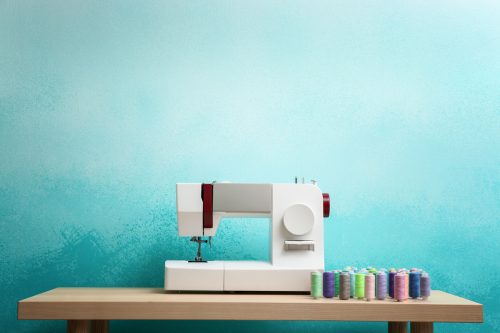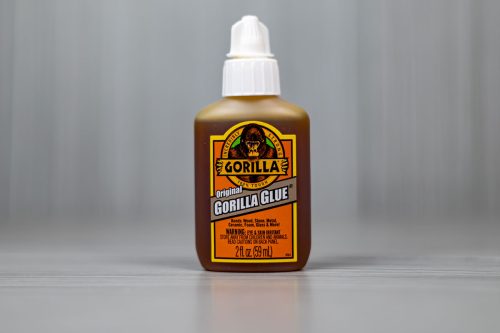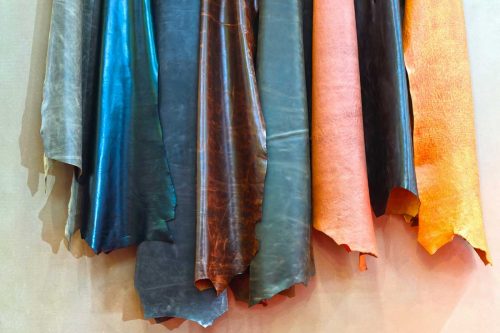Learn more about this versatile material before you dive into your next crochet, knitting, or arts and craft project that requires cotton yarn. Cotton is a hardy, breathable, low-maintenance fiber that doesn't lose performance after a wash.
Cotton is ideal for creating soft baby items, durable clothing, warm blankets, and accessories. However, you should familiarize yourself with different types of cotton yarn. Specific cotton yarns may be more suitable for your next project.
You will select yarn made from cotton or a cotton blend in most cases. Don't forget to include how the weight and ply of your choice of yarn will impact the look and feel of your next crocheted, knitted, or woven item.
In this post, we will cover the following types of cotton yarn.
- Organic
- Egyptian
- Pima
- Mercerized
- Milk
- Cotton Blends
Cotton is a delight to work with when crafting knitted, crocheted, or other needlework projects. Read on to learn more.
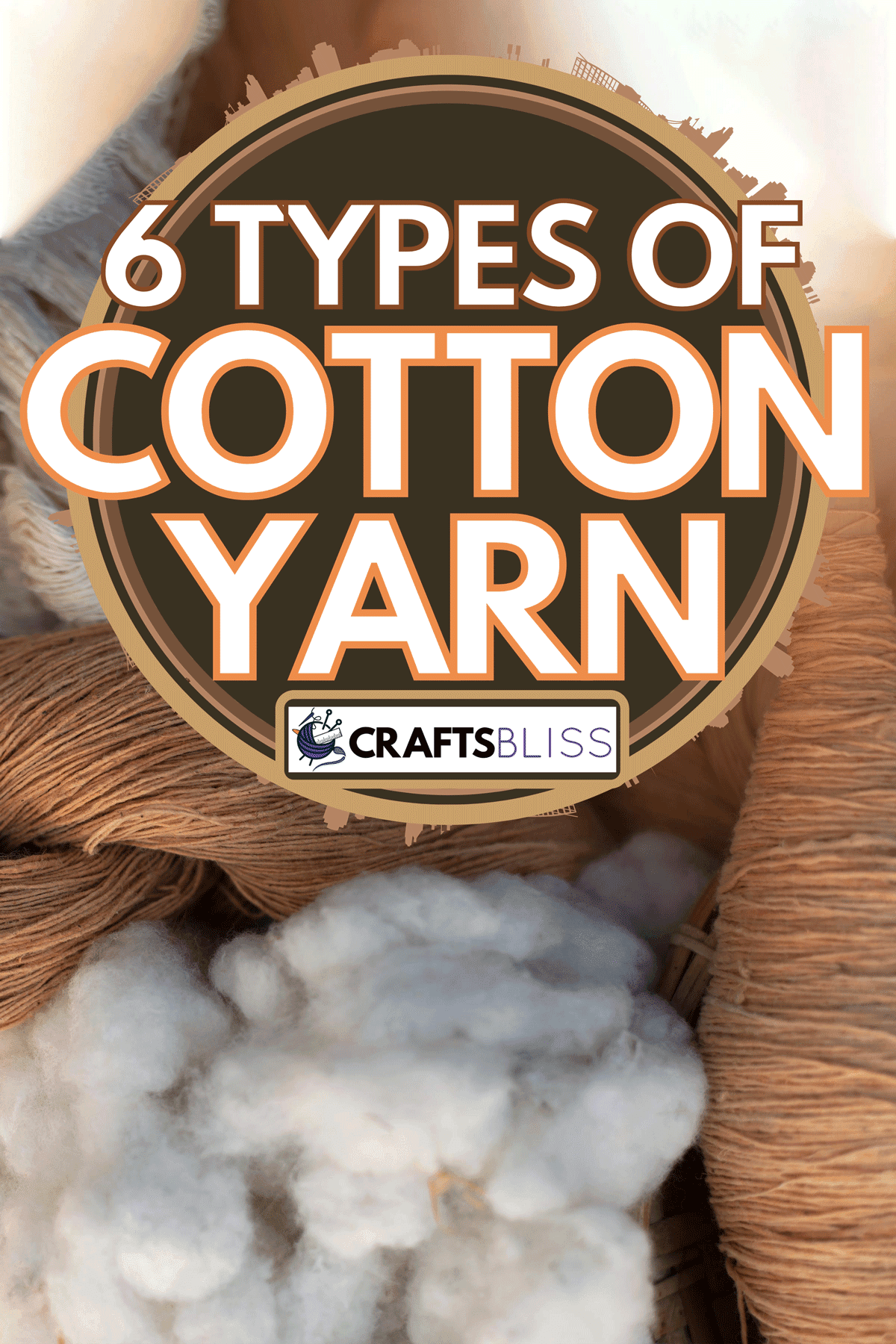
Exploring Cotton Yarns
Discover the unique properties of specific cotton yarns to create the best needlework or handcrafted item.
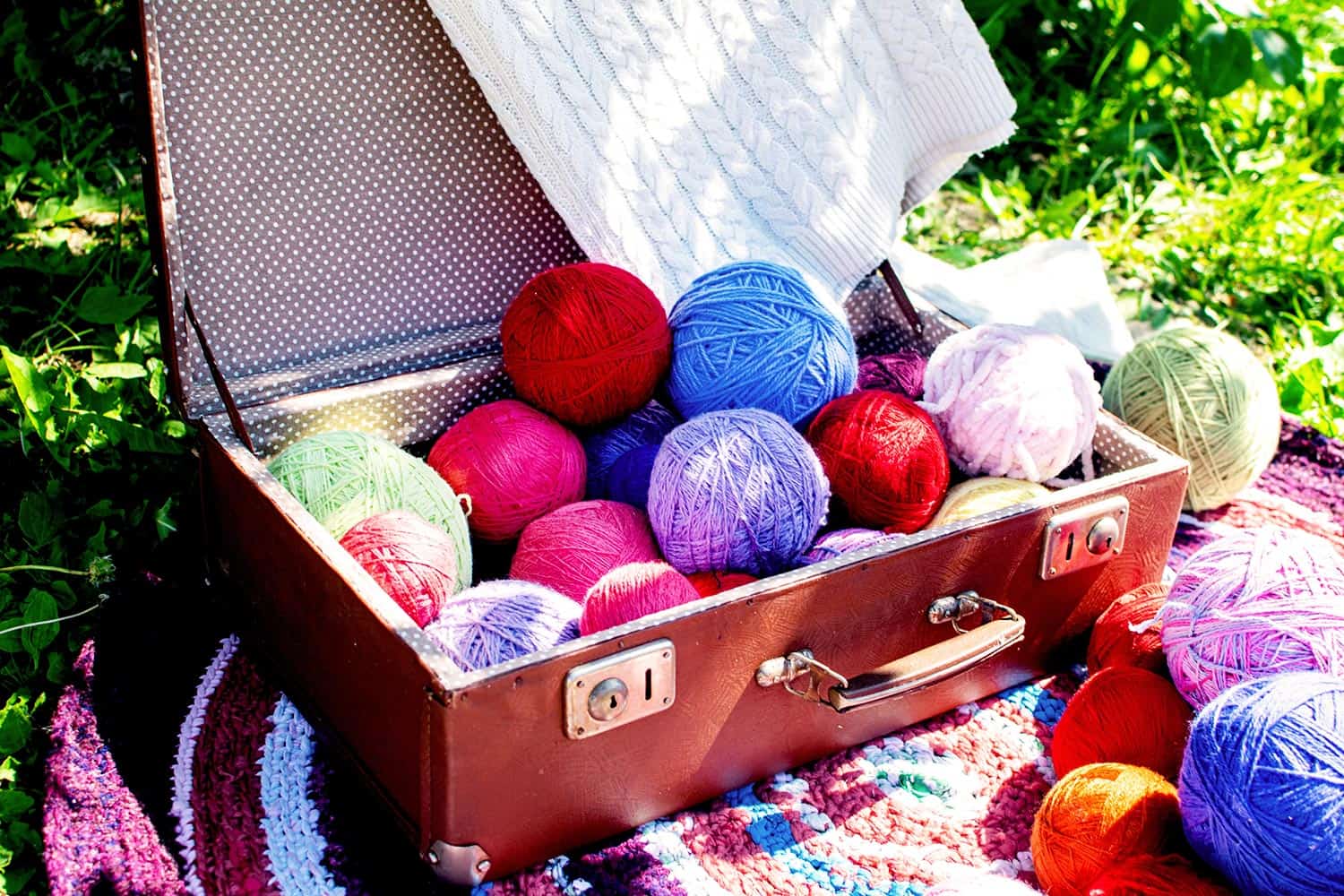
1. Organic Cotton Yarn
Due to pesticides and toxins used for processing regular cotton, many concerned crafters seek out organic cotton yarn. Organic cotton is considered higher quality, creating more durable, softer goods. However, shrinkage may be an issue.
Choose an organic yarn for babies, persons with sensitive skin, or conscious types to make blankets, apparel, and more.
Pros
- Sense of being more beneficial for the environment
- More durable and desirable than conventional cotton
Cons
- More expensive than conventional cotton yarns
Brands To Try
Look for Lion Brand, Blue Sky Fibers, Gazzal
Check out this Lion Brand organic yarn on Amazon.
2. Egyptian Cotton Yarn
By far, Egyptian cotton is viewed as the most luxurious, high-quality cotton one can use for knitting, crocheting, and those famous sheets. Authentic Egyptian cotton is usually hand-picked and has extra-long-staple cotton fibers.
Choose a highly absorbent, silky, durable Egyptian cotton yarn to make afghans, shawls, hats, sweaters, and socks.
Pros
- Softer, absorbent, and more breathable than conventional cotton
- Not prone to piling and incredibly durable
Cons
- More expensive than other types of cotton
Brands To Try
Choose Safran or Premier Afternoon Cotton
Check out this Egyptian cotton yarn on Amazon.
3. Pima Cotton Yarn
If you can't afford Egyptian cotton, opt for Pima, which has medium to long-staple fibers. Textile enthusiasts and garment makers love Pima for creating incredibly soft, luxurious shirts, summer tops that drape, sweaters, and hats.
Supima cotton is used for marketing superior-grade American Gossypium barbadense for its extra-long staple fibers.
Pros
- An inexpensive alternative to Egyptian cotton with a luxurious finish
- Soft, dense, durable fibers
Cons
- High absorbency may lead to the easier formation of stains on the material
Brands To Try
Choose from Cascade Yarns or Lion Brand
Check out this Pima cotton yarn on Amazon.
4. Mercerized
When you need yarn for items that can handle frequent use, like dishcloths, washcloths, placemats, or amigurumi, mercerized yarn is ideal. Compared to other types, mercerized cotton is more resistant to mildew and loses shape.
Mercerized cotton undergoes a chemical process to strengthen the fibers and improve how well it holds dye.
Pros
- It doesn't tend to shrink or lose its shape
- Can handle frequent use and abuse without losing performance
Cons
- It May feel a bit rough on your hands when working the yarn
Brands To Try
Look for Tahki Yarns, Patons Grace, or La Mia
Check out this Mercerized cotton yarn on Amazon.
5. Milk Cotton Yarn
Incredibly, milk fiber can be blended with cotton to create a soft, wool-like yarn. However, milk cotton yarn lacks stretch when working on a project. Use milk cotton to make socks, rugs, cozies, market bags, and other fun ideas.
The combination of milk proteins and cotton often creates a yarn that allows for soft, flexible, warm finished projects.
Pros
- Breathable, absorbent, silky soft fiber
- It doesn't pile easily and is affordable
Cons
- Lacks stretch when working with fiber
Brands To Try
Look for Tanlita or Abby Hand Crafts.
Check out this Milk cotton yarn on Amazon.
Cotton Blends
Often, seasoned and newbie knitters, crocheters, and crafters will pick up a yarn that is a blend of cotton and another fiber. Yarns are usually a mix of fibers to improve a garment's durability, softness, performance, or aesthetic value.
When you cannot work with a specific type of fiber, a blended cotton yarn with a synthetic or natural fiber is helpful.
Cotton & Acrylic Yarn
If you appreciate a comfy and warm yarn for cold weather items or kids' hats and gloves, check out a blended cotton and acrylic yarn. A garment made with this blend of fibers tends to be durable, lightweight but warm and soft.
Acrylic also adds a bit of strength to cotton fibers, and it isn't likely to develop mildew, mold, or moth damage like wool.
Pros
- The combination creates a soft, breathable yarn with a bit of elasticity
- Warm and soft like wool but less expensive and resists mildew and mold
Cons
- Acrylic fibers may release microplastics when washed
Brands To Try
Look for Cascade Yarns, Premier, or Alize
Check out this sport-weight acrylic-cotton yarn on Amazon.
Cotton & Wool Yarn
Craft a stylish, comfy garment made from a combination of non-shedding cotton and warm wool fibers. Both materials are incredibly durable, absorbent, and last for years. Choose this type of yarn for a lightweight cold-weather garment.
If you want to make a homemade rug, blanket, throw pillow, or top, a cotton and wool blend is less itchy and cooling.
Pros
- An ideal choice for high-end, cold weather items
- After washing, garments resist wrinkling and retain their shape
Cons
- Not ideal for making warm weather items
Brands To Try
Choose from Drops, Cascade Yarns, or About Strings
Check out this cotton-wool blend yarn on Amazon.
Cotton & Bamboo Yarn
Bamboo fiber is desirable because it is soft like silk, flexible, strong, and is suitable for projects that need dramatic drapery. Adding cotton to anti-bacterial and absorbent bamboo adds tensile strength while maintaining a luxurious feel.
Make breathable, stretchy items like scarves, shawls, dresses, and wraps using a great bamboo cotton blend yarn.
Pros
- Bamboo creates a wonderful drape to items
- Bamboo adds UV protection, anti-bacterial properties and is lightweight
Cons
- Washing items in hot water may lead to shrinkage
Brands To Try
Look for JubileeYarn, Coboo form Lion Brand, or King Cole Bamboo Cotton DK
Check out this cotton-bamboo blend yarn on Amazon.
Cotton & Polyester Yarn
Create needlework projects with the durability of canvas using a blend of synthetic polyester and natural cotton. Items made from polyester and cotton tend to be resistant to tearing, wrinkling, fading and are breathable.
Use this blend of yarn to create throws, hats, scarves, and versatile items that are comfy and soft for year-round use.
Pros
- Optimal for lightweight summer tops, wraps, or beanie hats
- Inexpensive option than 100% cotton
Cons
- Synthetic polyester is not environmentally friendly
Brands To Try
Choose Lion Brand Comfy Cotton or Jubilee Yarn Minnesota
Check out these cotton and polyester blend yarns on Amazon.
Are Blended Cotton Yarns Better Than 100% Cotton Yarn?
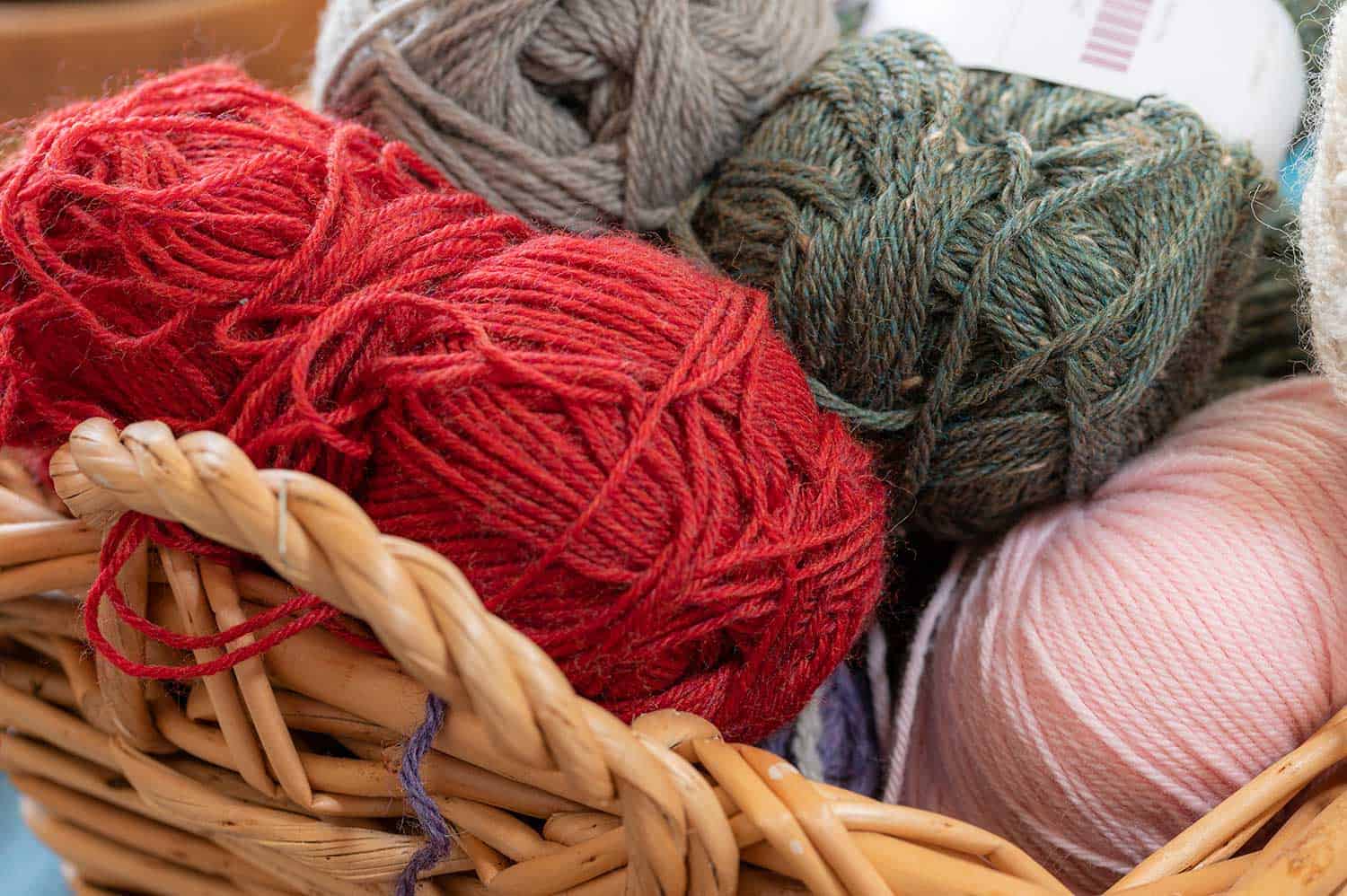
A 100% cotton or organic cotton yarn may be more expensive than blended cotton yarn. Blended yarns offer the best of both types of fibers used, adding strength, softness, absorbency, or longevity to a garment or item.
A blended cotton yarn may have increased elasticity and be easier to knit or crochet than a stiff, cotton yarn.
How Can You Prevent Cotton Yarn From Fading?
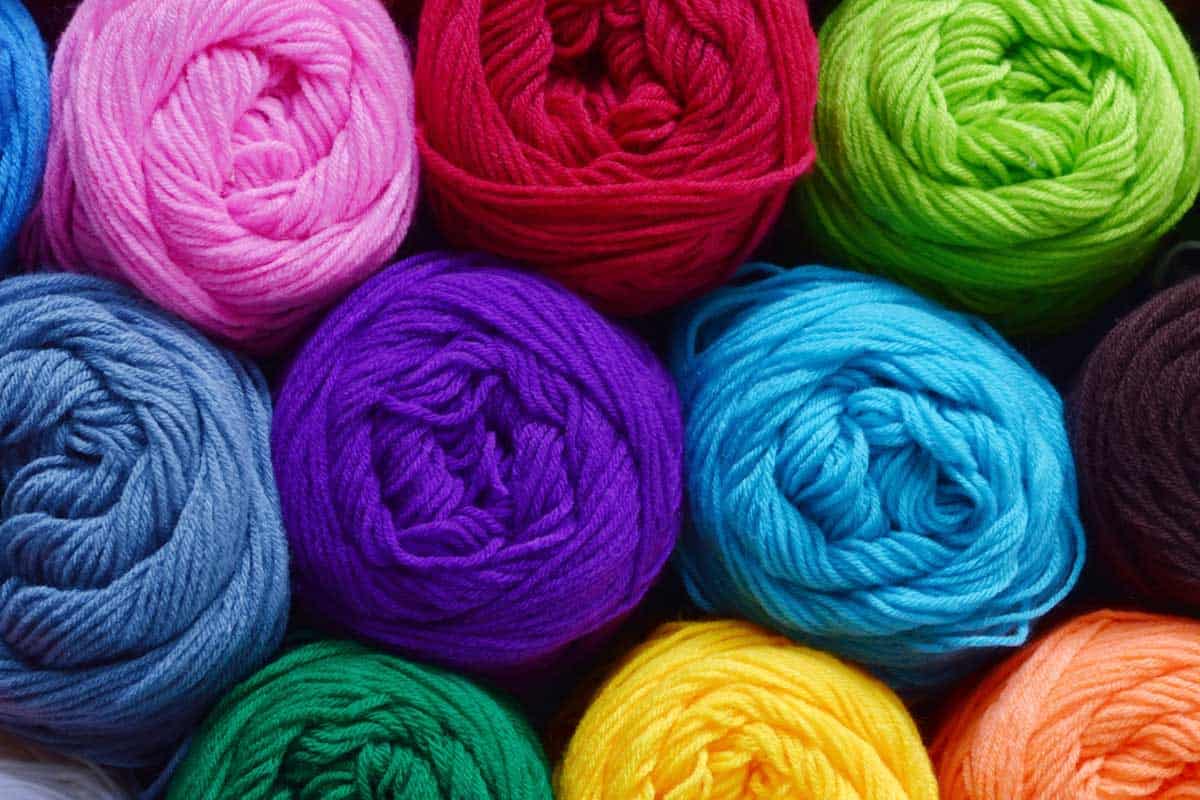
If blended with another type of fiber, specific cotton yarns might be more resistant to losing their colors if dyed. However, if you want to reduce the chance of cotton yarn fading, soak it in white vinegar and water before washing.
How To Care For Items Made Using Cotton Yarn?
Most items made from cotton or a blended cotton yarn can be thrown into the machine wash on the gentle cycle without worry. Use cold water to be safe. However, it is best to line dry or lay flat knitted or crocheted items afterward.
You may need to pre-wash cotton yarns before working on a project and block them after to ensure proper fit and shape.
Do Knitted Or Crocheted Cotton Items Lose Their Shape Easily?
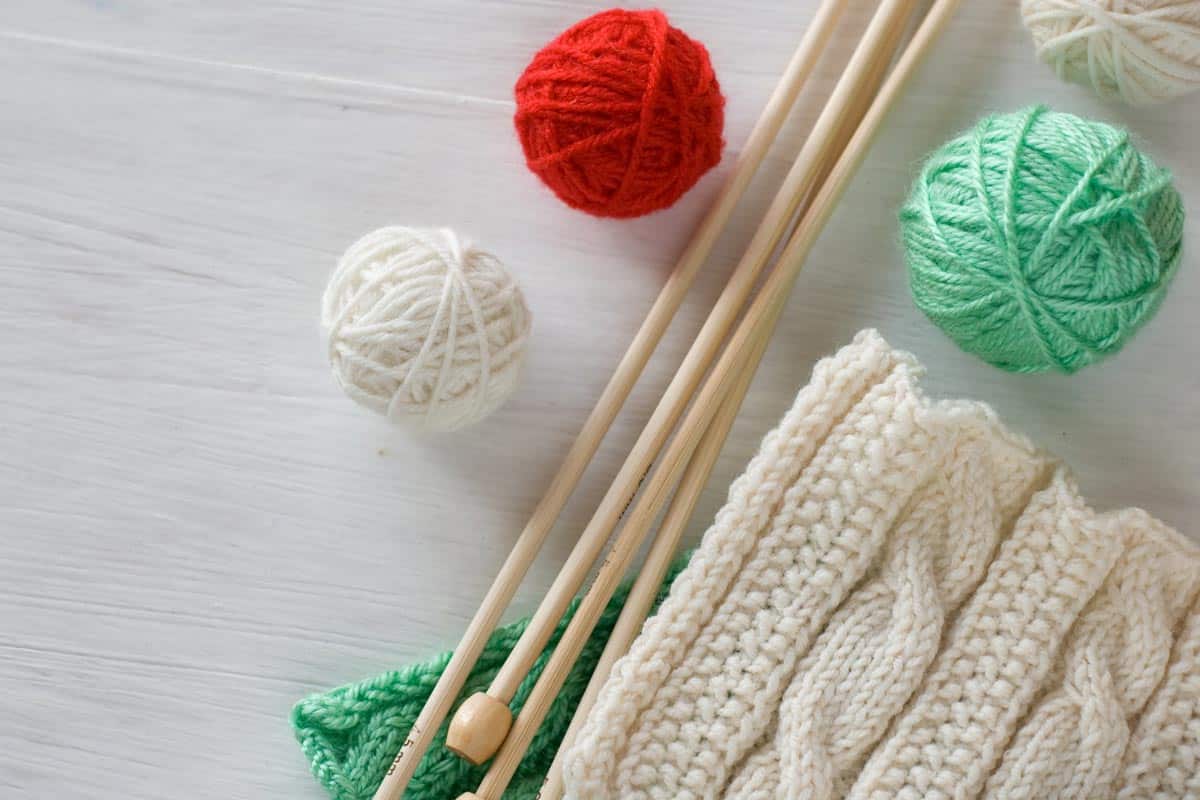
You may need to re-block or reshape cotton garments after a wash, even with a blended yarn. Cotton is not very elastic and tends to lose its shape. Lay items flat to dry after reshaping them for best results.
Conclusion
We hope the next time you pick up your needles or prep a loom, you pick up a cotton yarn that is a pleasure to work with. Cotton is a desirable textile fiber because it washes well, is inexpensive, and is versatile enough for different projects.
Choose a wonderful brand of cotton or cotton-blend yarn for your next handcrafted knit, crochet, or woven item.
Before you go, you won't want to miss the following helpful articles.









![Read more about the article What’s The Best Glue For Fiberglass? [Our Top Products Explored]](https://craftsbliss.com/wp-content/uploads/2023/01/Worker-rolls-glue-solution-through-fiberglass-sheets-500x333.jpg)

